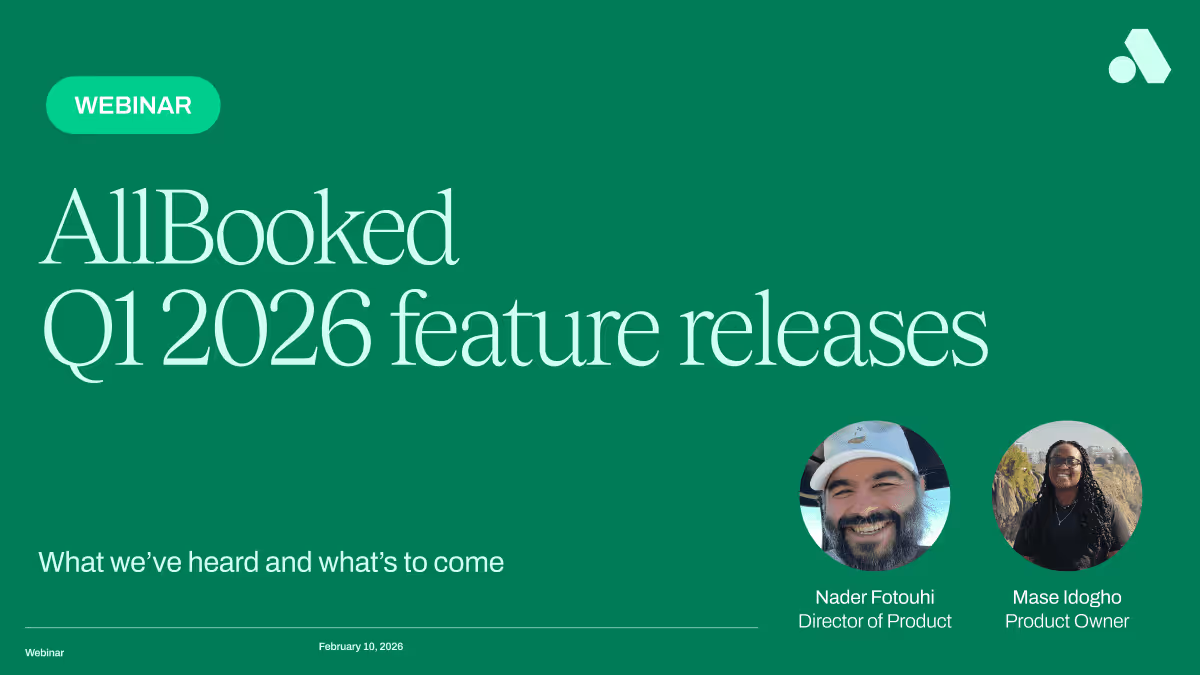It goes without saying that managing a community hall is one of the most rewarding roles—yet it is also one of the most challenging. Directors and staff invest so much time and effort into ensuring the facility is supporting the needs of the community, yet there is always a shortage of funding to keep it operating as they envision.
Space and budget constraints are some of the all-too-familiar challenges these centers face, which is why it’s critical to implement a system that optimizes both areas. One solution is to streamline booking through community center management software, which not only improves operations, but also can generate an additional source of income.
Here’s how systems like these monetize your community hall, and the features you should consider when evaluating your options:
- Increased revenue through pricing rules and direct payment integrations
- Optimized space utilization through space sharing rules and built-in analytics tools
- Simplified user experience through streamlined payment processing and intuitive interfaces
- Efficient use of staffing resources by reducing administrative work and integrating smart lock systems
Increased revenue
Pricing rules
It’s important to price your facility in a way that’s attractive to your community while also being profitable for your organization; and whichever strategy you choose is dependent upon your unique position in the market.
Here are three common types of pricing strategies used by our customers to monetize their community hall:
- Dynamic pricing: pricing that fluctuates with demand
- This could look like pricing spaces in your facility higher during peak hours and lower during off-peak hours, allowing your facility to capitalize on demand.
- Tiered pricing: pricing that varies with different levels of usage or features
- This could look like creating packages that incrementally increase in price based on the level of access to spaces or additional features, allowing your facility to cast a wide net and attract a range of members with varying budgets and needs
- Loyalty-based pricing: pricing that’s adjusted based on a customer’s status and commitment to an organization
- This could look like offering discounts to specific members based on the number of bookings they make at your facility.
Your pricing model is a major component to your community hall’s booking strategy, and should be treated as such. Regardless of what type of strategy you adopt at your organization—dynamic, tiered, loyalty-based, or a combination of all three—the platform you choose should be flexible enough to support your organization’s unique needs. Look for a community center management software with customizable pricing rules, allowing you to set bookings at either a fixed or variable rate, and depending on user type, time of day, day of week, and duration.
Direct payment integration
As your business grows, juggling multiple tools for booking and payments quickly becomes unmanageable. Forcing two systems to “talk” to each other and share data is not only operationally inefficient, it’s expensive. Plus, the more tools you use, the more costs you incur.
Keep your workflow centralized, monetize your community hall, and avoid the cost of additional software by opting for an all-in-one booking and payment solution with a direct payment integration.
Optimized space utilization
Space sharing rules
Does the same one-man team that books every Tuesday really need the full basketball court to practice? Probably not. What about the 10-person book club that takes up the event hall in the facility for their weekly meeting? Doubt it.
It’s clear that these spaces are not being used to their fullest potential—but, if you were to split the spaces in two, and make each bookable at the same time, you could double your income during a given timeframe and further monetize your community hall. The question now becomes, how can you actually put this into practice?
Consider community center management software that offers space-sharing dependencies. With features like these, you can make the full venue available, or divide it into separate sections to maximize your space. You can further manage dependencies so that when one part of the venue is booked, the other half is automatically unavailable, and vice versa. This level of control allows you to optimize space usage, prevent conflict, and ultimately monetize your community hall by increasing booking availability.
Reporting capabilities
If you don’t know who is using your spaces and when, it’s easy to miss opportunities. Information is power, and your community hall booking strategy should be informed by data to support educated, impactful decisions.
Look for a platform that gives you full visibility into your reservations—showing which spaces are used most often, when peak hours are, and how often individual users are booking. Data like this can help guide long-term planning strategies and inform adjustments to your approach. Think about the kind of changes you could make if you leverage this information. Periods where there is high demand could be priced higher, and if bookings are trending upwards for certain spaces, you can evaluate what’s making them more attractive than others. These are just a few examples of many that can be made to monetize your community hall.
Simplified user experience
Streamlined payment processing
Easy booking means easy income. Think about the last time you were shopping for something on your phone, and you physically had to get up off your couch to find your credit card. Did you abandon the purchase simply because it required a little extra effort? Most likely.
It pays to create a seamless booking experience. According to Forbes, one company reduced friction in a single date-of-birth data field by 20% and saw a 40% reduction in abandonment. Imagine what this scenario might look like for your community hall booking flow. Choose a platform that makes the buying journey frictionless. Look for a community center management software that saves credit card information, has a mobile wallet checkout option, and lets you choose whether members pay upfront or book now, and pay later.
Intuitive interfaces
The same concept applies to user experience within the booking platform itself. If it’s a challenge to make a reservation, chances are, users aren’t going to proceed.
Seek out a community center management software that provides bookers with different calendar view options so they can choose the format that’s easiest for them to use. Map views are especially helpful, as users can see your facility from a birds-eye view and make bookings directly by clicking on a space.
Yet, an intuitive user interface offers benefits beyond easy reservations, like improved brand perception and effective schedule planning. Customizable booking pages, with options to add your logo and brand colors, reinforce your identity and leave a professional impression on users. Additionally, a real-time view of available time slots allows bookers to plan out their schedules accordingly and make advance or recurring community hall booking reservations.
Efficient use of staffing resources
Reduced administrative work
All tasks are tied to a dollar amount, including the small things you’d normally never think of—like time spent manually processing payments, reconciling transactions, and preparing reports. To demonstrate what this looks like in practice, it’s helpful to ask the question: what could your staff be doing with all the time currently spent on managing event bookings? This phenomenon is called an opportunity cost, defined by Forbes as the value of the next best alternative forgone when a decision is made—and it could be holding your business back.
That said, with the right community center management software, you could get your time and money back, so that you can reallocate resources to other areas of your business. Look for systems with features that automate the entire payment process, from processing to reporting, so that you no longer have to spend your hours on manual work.
Smart lock integrations
Traditional business hours are nine to five, yet bookings don’t have to be. In fact, so much opportunity to monetize your community hall is neglected by not making the spaces in your facility available past operating hours. Daytime workers or school-aged children may want to access courts or rooms after-hours, and restricting bookings to only when you are technically “open” leaves a major gap in potential revenue.
But, how can you increase hours without adding to employee workloads or hiring more staff? Through cloud-based access control integrations. Software like this allows you to unlock spaces at specified times, so that you don’t have to physically be present to open the facility for them, increasing opportunities for bookings.
When integrated with a community center management software, this can look like:
- Automatically unlocking a door precisely at the time of a booking
- Setting up a scheduled unlock that lasts for the entire duration of the booking
- Distributing an access link that remains valid throughout the booking period
Now that you’re equipped with all the information you need to maximize your community hall bookings, it’s time to start your search for the right platform. See how AllBooked can help you monetize your community hall by starting a free trial below.








